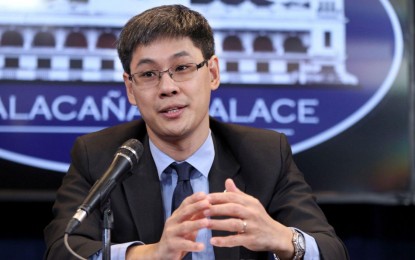
Socioeconomic Planning Secretary Karl Kendrick Chua (File photo)
MANILA – Socioeconomic Planning Secretary Karl Kendrick Chua hopes that community quarantine measures next month would be less restrictive to ease the impacts of lockdowns on the economy.
During the Manufacturing Summit Thursday, Chua said 54 percent of the economy is currently under modified enhanced community quarantine (MECQ) which is affecting 15.6 million workers.
“We hope to move towards a less stringent quarantine in the coming weeks as we address the Delta variant… We will continue to review the economic and health data so we can move as sooner to a more relaxed quarantine to allow more people to go back to work,” he said.
Chua, who is also the director general at the National Economic and Development Authority (NEDA), added the government has been mindful of the cost of the community quarantine measures to the economy.
Based on estimates of the Philippine Statistics Authority and NEDA, PHP144 billion per week was shed from the economy when National Capital Region (NCR) Plus --Metro Manila, Bulacan, Cavite, Laguna, and Rizal-- was placed under ECQ.
The ECQ in NCR Plus also took away jobs from 607,000 workers and affected up to 242,000 poor individuals.
When the quarantine status was relaxed to MECQ, economic losses were down to PHP73.7 billion, while jobless people decreased to 310,000 and affected a lesser number of poor at 82,000 to 123,000.
More jobs and revenues were brought back to the economy under general community quarantine (GCQ) with heightened restrictions as economic losses further declined to PHP21.4 billion and the number of unemployed individuals eased to 90,000.
“The 2021 prospects remain encouraging and our enablers include the acceleration of the vaccination program, the safe reopening of the economy while strictly adhering to the health protocols, and the full implementation of the recovery package,” Chua said.
He added implementing these policies will prevent long-term scarring and productivity losses.
The government eyes 4 percent to 5-percent gross domestic product (GDP) growth this year and bouncing to 7 percent to 9 percent by 2022 before easing to its long-term growth rate target of 6 percent to 7 percent by 2023 and 2024.
The country’s chief economist said the vaccination program against coronavirus disease 2019 (Covid-19) remains on track.
As of August 24, more than 31.1 million doses of Covid-19 vaccines have been administered in the country. (PNA)
